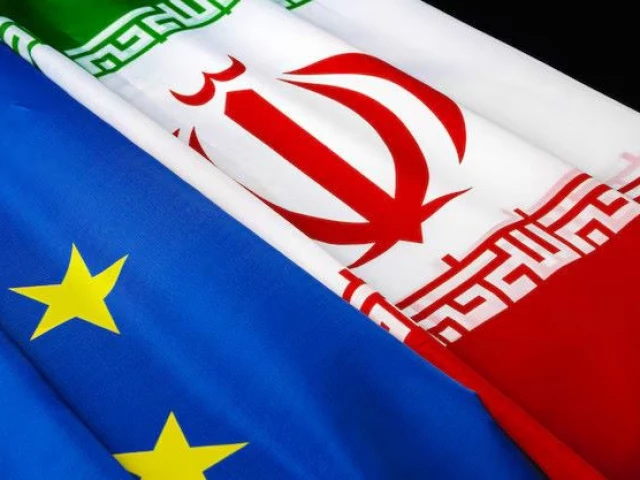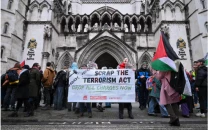European powers plan fresh nuclear talks with Iran
Consultations are ongoing regarding a date and location for the talks

European powers plan fresh talks with Iran on its nuclear programme in the coming days, the first since the US attacked Iranian nuclear facilities a month ago, a German diplomatic source told AFP on Sunday.
Britain, France and Germany, known as the E3, "are in contact with Iran to schedule further talks for the coming week", the source said.
The trio had recently warned that international sanctions against Iran could be reactivated if Tehran does not return to the negotiating table. Iran's Tasnim news agency also reported that Tehran had agreed to hold talks with the three European countries, citing an unnamed source.
Consultations are ongoing regarding a date and location for the talks, the report said.
"Iran must never be allowed to acquire a nuclear weapon. That is why Germany, France and the United Kingdom are continuing to work intensively in the E3 format to find a sustainable and verifiable diplomatic solution to the Iranian nuclear programme," the German source said.
Western nations have long accused Iran of seeking to develop nuclear weapons, a charge Tehran has consistently denied.
Meanwhile on Sunday, Russian President Vladimir Putin held a surprise meeting in the Kremlin with Ali Larijani, top adviser to Iran's supreme leader on nuclear issues. Larijani "conveyed assessments of the escalating situation in the Middle East and around the Iranian nuclear programme", Kremlin spokesman Dmitry Peskov said of the unannounced meeting.
Putin had expressed Russia's "well-known positions on how to stabilise the situation in the region and on the political settlement of the Iranian nuclear programme", he added.
Moscow has a cordial relationship with Iran's clerical leadership and provides crucial backing for Tehran but did not swing forcefully behind its partner even after the United States joined Israel's bombing campaign.
Iran and world powers struck a deal in 2015 called the Joint Comprehensive Plan of Action (JCPOA), which placed significant restrictions on Tehran's nuclear programme in exchange for sanctions relief.
But the hard-won deal began to unravel in 2018, during Trump's first presidency, when the United States walked away from it and reimposed sanctions on Iran.
European countries have in recent days threatened to trigger the deal's "snapback" mechanism, which allows the reimposition of sanctions in the event of non-compliance by Iran.
After a call with his European counterparts on Friday, Iranian Foreign Minister Abbas Araghchi said the Western allies had no grounds for reactivating sanctions




1644560129-0/download-(20)1644560129-0-208x130.webp)














COMMENTS
Comments are moderated and generally will be posted if they are on-topic and not abusive.
For more information, please see our Comments FAQ